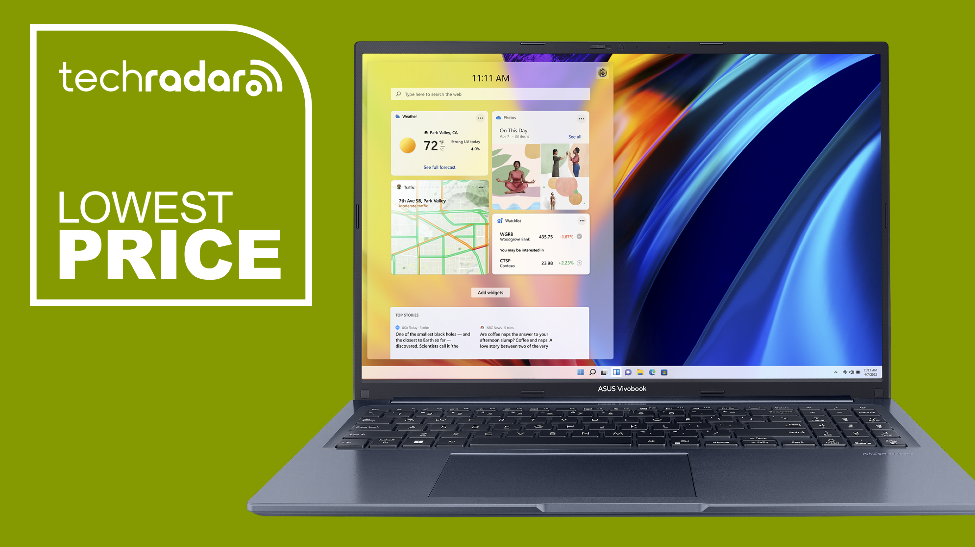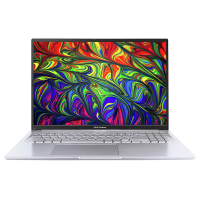I found the most powerful laptop under $500 and it beats MacBook Pro on three key features
The Asus Vivobook 16X is a cracking deal if you’re looking for a super-fast notebook

The Vivobook 16X will appeal to anyone looking for a light, affordable laptop with a big screen, a powerful processor, decent graphics, a numeric keypad and a known brand.
What is it? Right now, the Asus Vivobook 16X is the fastest laptop that costs less than $500. Just five Benjamins get you a laptop with an 8-core processor and a 16-inch screen. And no, I don't think that this price will drop before Black Friday or indeed Amazon October Prime Day.
What makes it special? Other than its rock-bottom price, its design positions it as an affordable, Windows-based version of the MacBook Pro, one of the best laptops around. It measures about 36 x 25 x 2cm, weighing just under 1.9kg. In comparison, the 2024 version of Apple’s flagship 16-inch laptop is about the same size but tips the scale at 2.14kg. I know it is not a direct apple-to-apple comparison so I’ll leave you with one last piece of data. The 16-inch MacBook Pro costs more than five times the Vivobook 16X.
Why should I buy it? I have never seen a processor that powerful in a laptop that cheap. The AMD Ryzen 7 5800HS CPU has 16 threads and is faster (at least according to popular testing site CPUBenchmark) than the Core i5-1350P or the Apple M3 (8-core). It will excel - within limits - at demanding computing tasks; from AI to data analysis. It might even be up for some light gaming/creative tasks thanks to the embedded Radeon RX Vega 8 GPU. Remember that it is a laptop and will perform best when connected to the mains.

Why should you trust me? I have been writing about technology deals for more than 20 years, with my name appearing on thousands of deal posts on TechRadar, the now-defunct ITProPortal or on countless deal forums. I started with scanned leaflets and magazines before the end of the last millennium, when the World Wide Web was in its infancy. I launched one of the first - if not the first - live deal blogs back in August 2011 and a regular tech deals newsletter even earlier. So, yes, I know a thing or two about what makes a good technology bargain.
What else should I know? It runs on Windows 11 Home, The memory is upgradable to 40GB, there are six ports, a backlit keyboard (with a dedicated numeric keypad, something the MBP doesn’t offer), the webcam has a privacy shutter, a fingerprint reader and there’s even TPM support (a staple feature in most business laptops). It is even MIL-STD-810H rated which means it should easily deal with a bit of rough handling. Oh and before I forget, let me talk a bit about the screen. It’s 16-inch with a 1920 x 1200 pixel resolution and 300 nits brightness and one which can lay flat, making it great for an impromptu, on-the-spot group huddle.
Any cons? Corners have been cut to get to this price point. The Vivobook 16X has only 12GB of RAM, some of which will be ringfenced by the integrated GPU. That may slow things down should you have, just like me, dozens of browser tabs opened. It uses an older SSD technology (PCIe 3.0) but given its price point, that is adequate. The battery capacity stands at a paltry 50WHr and Asus saw it wise to have a USB 2.0 (yes USB 2.0) port thrown in the mix. And no, there’s no memory card reader.
What do others say? Our colleagues at Laptopmag reviewed the Vivobook 16X (albeit with an Intel CPU). They said, “an ideal laptop for the whole family — packing just enough performance for the basic needs of a household with a gigantic screen for basic productivity and binge-watching enjoyment”. The battery lasted four hours using the Core i3 CPU. 240 minutes only.
Are you a pro? Subscribe to our newsletter
Sign up to the TechRadar Pro newsletter to get all the top news, opinion, features and guidance your business needs to succeed!

Désiré has been musing and writing about technology during a career spanning four decades. He dabbled in website builders and web hosting when DHTML and frames were in vogue and started narrating about the impact of technology on society just before the start of the Y2K hysteria at the turn of the last millennium.
